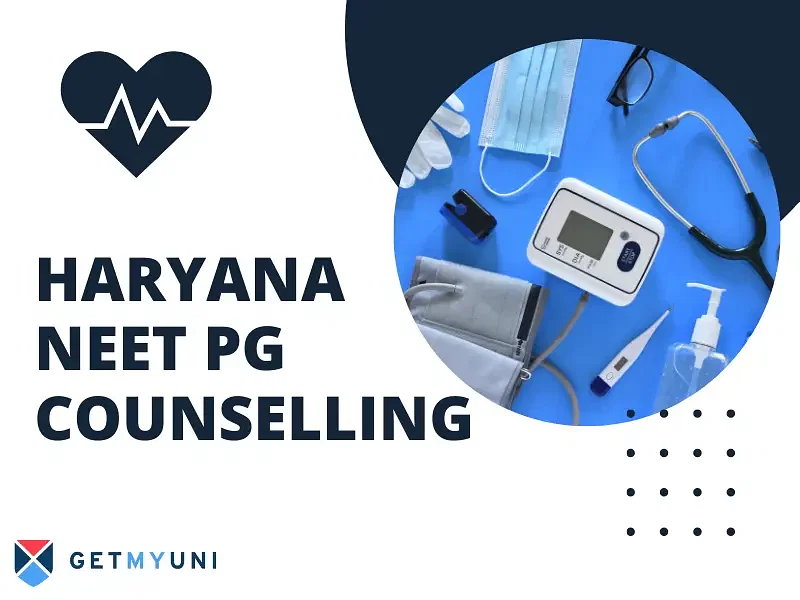Anxiety, stress, family pressure, sleepless nights, etc., are some of the challenges faced by MBBS students. Overcoming them requires balancing priorities and students must create opportunities for socialising once or twice a week to keep in touch with nature and refresh their minds.
Challenges faced by MBBS students are immense and overcoming them is a hurdle that requires balance and dedication. The medical field is relentless, where students submerge themselves in heaps of commitment and focus to ensure excellent results. From sleepless nights to managing anxiety, missing personal occasions, creating a proper study schedule, boosting your concentration, and much more, life becomes quite tough after choosing this journey.
Academic success and goals of MBBS can only be achieved when a student has a clear focus on the goals and they do not let these hurdles stop them from accomplishing themselves.
Challenges Faced By MBBS Students & Methods To Overcome Them
Challenges faced by MBBS students and how to overcome them is a major concern for medical students. Anxiety, sleepless nights, family pressures, etc., make a medical student’s life tough.
Here is a list of various challenges that MBBS students face in their tough journey:
1. Academic Pressure & Workload
MBBS students have to go through demanding coursework. From course material to assignments, research, lab work, and whatnot, the time remains short and the load keeps growing heavy. There’s hardly a day for MBBS students to sigh a breath of relief as even one day of missing studies can cause many issues.
In general, an MBBS student has to spend 60-80 hours in one week studying, and attending lectures, labs, clinical rotations, and exams. This may lead to stress, anxiety, and even burnout if not balanced.
How To Overcome This Challenge?
- Although the academic workload is quite a lot, students must plan their schedules in such a manner that they get enough time to rest, study, and engage in their hobbies.
- From morning to evening, a detailed timetable specifying study hours, hobby time, rest, meals, and recreation will help manage things a bit more smoothly.
Making a timetable is not the only prerequisite. Sticking to it with discipline is equally important with a bit of deflection here and there.
Read More: 10 Time Management Tips & Techniques for Students
2. Fewer Chances For Socialising
Since the academic pressure is quite a lot on MBBS students, it’s difficult for them to go out and socialise. This can lead to isolation from friends and family, which may harm if not managed properly. The transition is tougher especially when students transition to medical school life from an undergraduate environment.
If students do focus on socialising more than studying, it may come back to bite them later. Thus, the work-life balance gets disrupted completely. Additionally, since the study pressure is a lot, connecting with people from other fields may get difficult as they may not understand the toll of your life on you.
How To Overcome This Challenge?
- Students must create opportunities for socialising once or twice a week to keep in touch with activities and refresh their minds.
- Time management is quite important, so you know when to study, when to rest, and when to meet people and be socially active.
If you feel like the stress is extracting fun out of you, you should contact a professional and let them help you.
3. Load Of Expectations
MBBS students carry a crate of expectations from their friends, family, and society in general. It may contribute to their anxiety and stress in various ways. The fear of failure or leading as an average student may seem like a kick. Additionally, you may automatically be assumed to be the intelligent one in the circle since you’re pursuing this tough field. It may be overwhelming to think in many cases and may cause mental pressure.
How To Overcome This Challenge?
- It’s quite challenging to control what others expect or hope from you.
- However, knowing that their expectations don’t define your worth and that it’s your skills, dedication, and hard work that matters in this field is important.
- So, whenever you feel like other people’s expectations are overwhelming you, take a deep breath and try to focus on your aims, goals, and ability to reach them.
Do not push yourself to the point of burning out. Consult a professional if you feel like you are reaching that point.
Also Check: 10 Tips for Staying Focused and Productive as A Student
4. Financial Complications
Studying in medical schools is expensive. From clearing NEET to spending 5 years in the MBBS course and then moving forward with other medical degrees, if needed, the expenses are sky-high. If you’re not on scholarships or don't have a strong financial background, paying the fees can become a burden on your mind.
There are tuition fees, living expenses (especially when you live in a hostel), books, and many more expenses. Thus, these complexities can place a significant burden on students.
How To Overcome This Challenge?
- You should apply for loans and grants
- Apply for scholarships where you are eligible
- If possible in your schedule, take up on or off campus jobs
- Look for part-time jobs that fit into your timetable without overburdening yourself.
It’s important you don’t let the stress and anxiety of financial complexities affect the journey you’ve embarked upon.
5. Lack Of Right Learning Material
The MBBS curriculum is extensive and several books, videos, and course materials are available in libraries or online. In such cases, students might feel overwhelmed about which book to follow, how to learn effectively, etc. Finding the resources that work best for you is important for academic success.
How To Overcome This Challenge?
- Go through online resources and find the ones that explain the concepts to you clearly
- Let your professors and seniors guide you
- Browse the library and practice the previous year's questions
- Participate in study groups
Read Now: Top 10 Most Effective Stress Management Techniques for Students
Conclusion:
The MBBS journey is filled with challenges that test students' intellect, resilience, and determination. However, by implementing effective coping strategies, building a support network, and maintaining a healthy work-life balance, MBBS students can overcome these obstacles and succeed both academically and personally.
Developing practical skills, managing stress, and nurturing mental and physical well-being are essential steps that contribute to a fulfilling and successful medical education.
Embracing these strategies not only aids students during their MBBS studies but also prepares them to become compassionate and competent healthcare professionals in the future.









